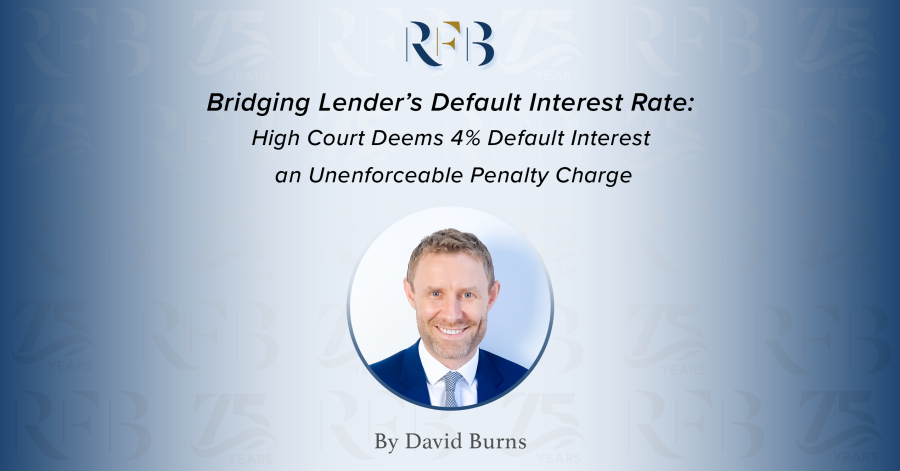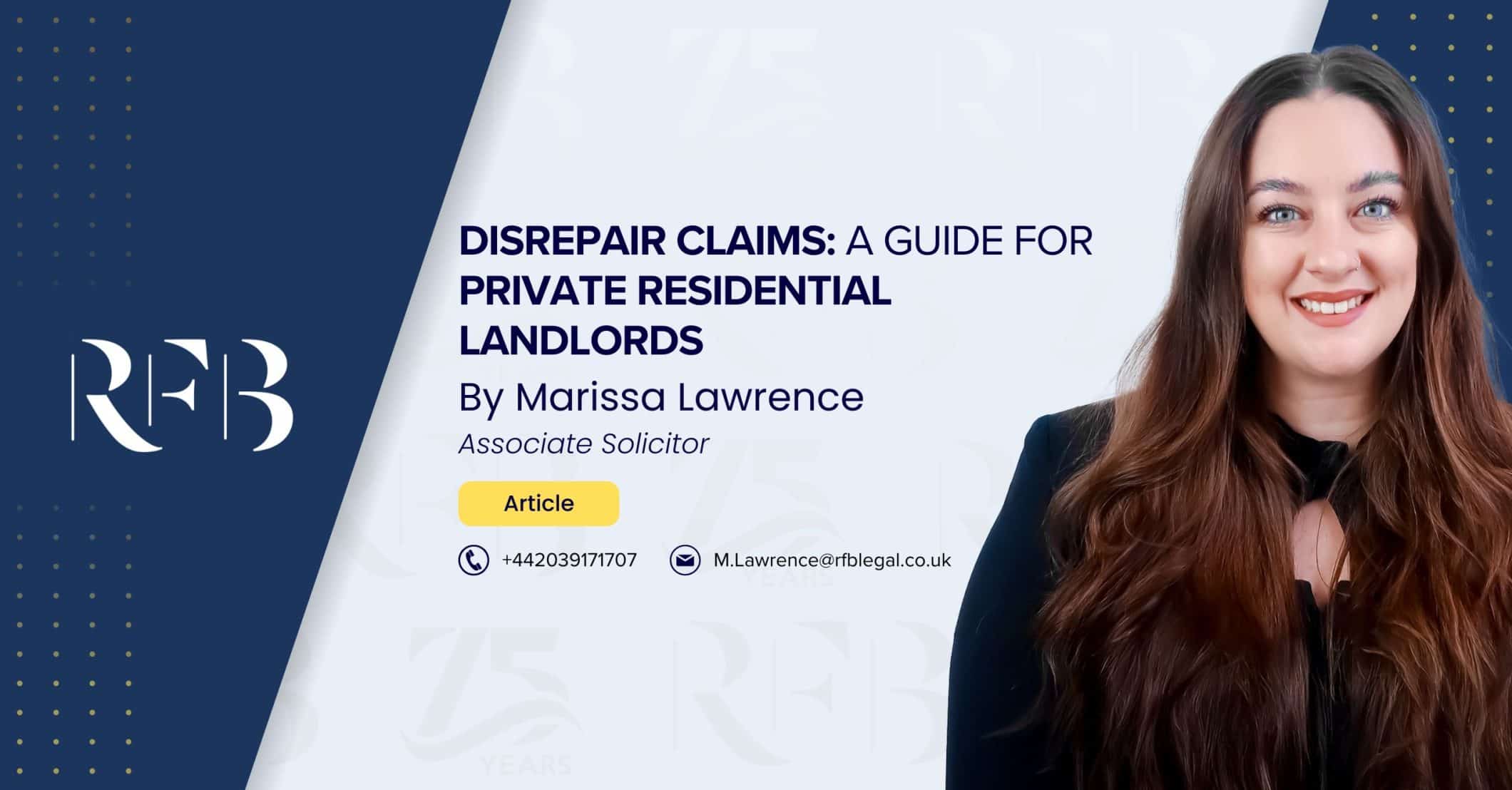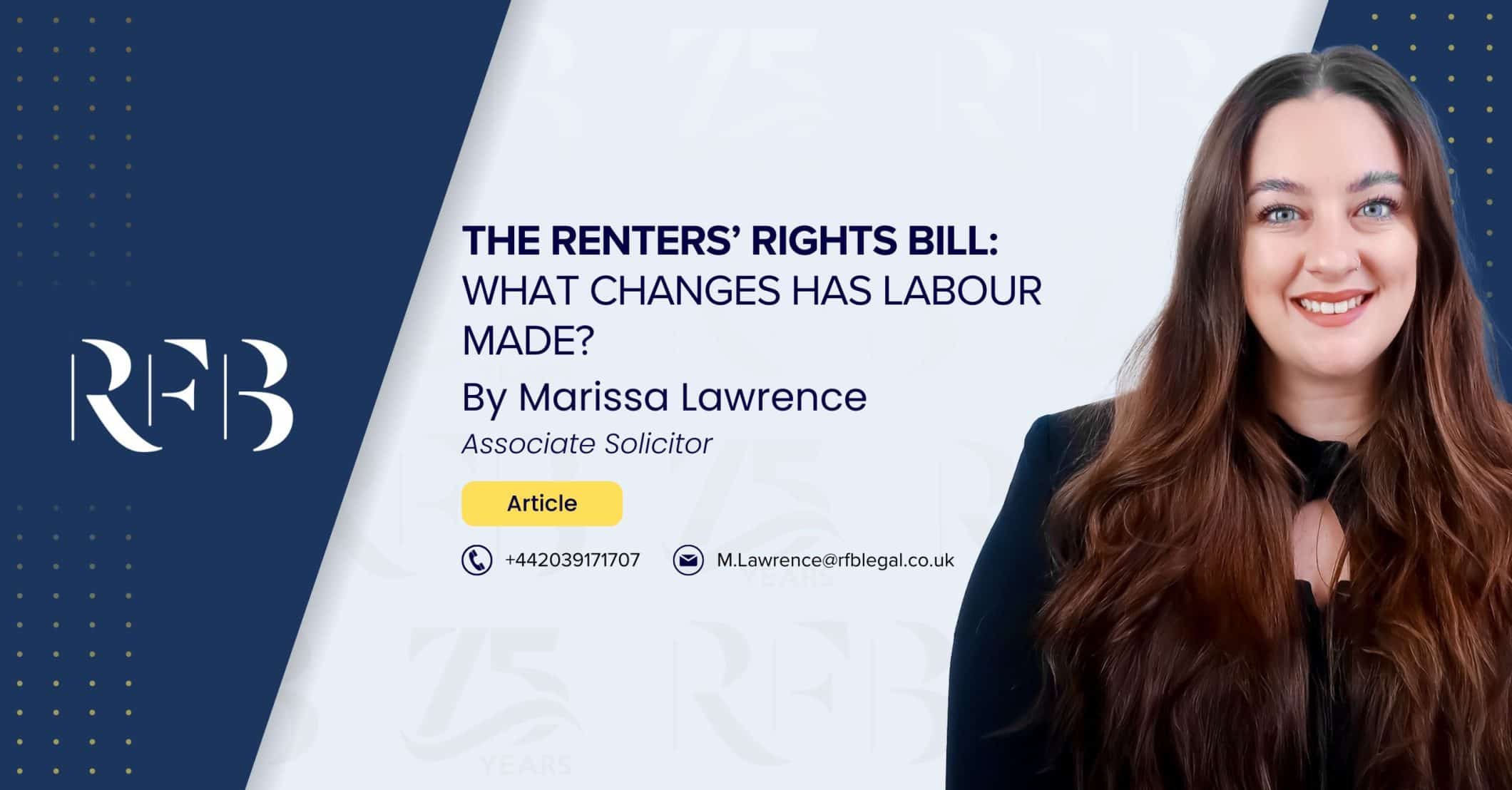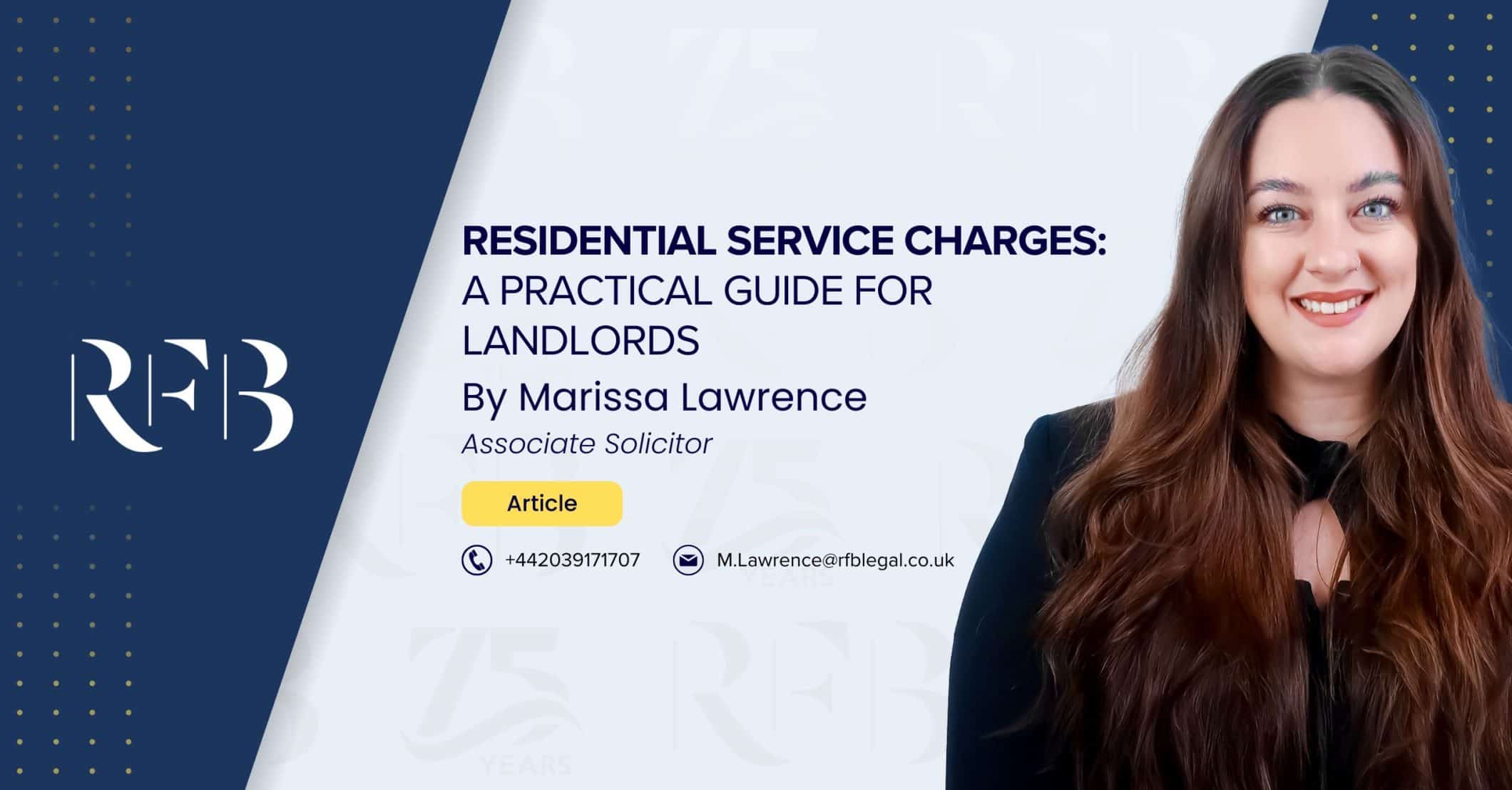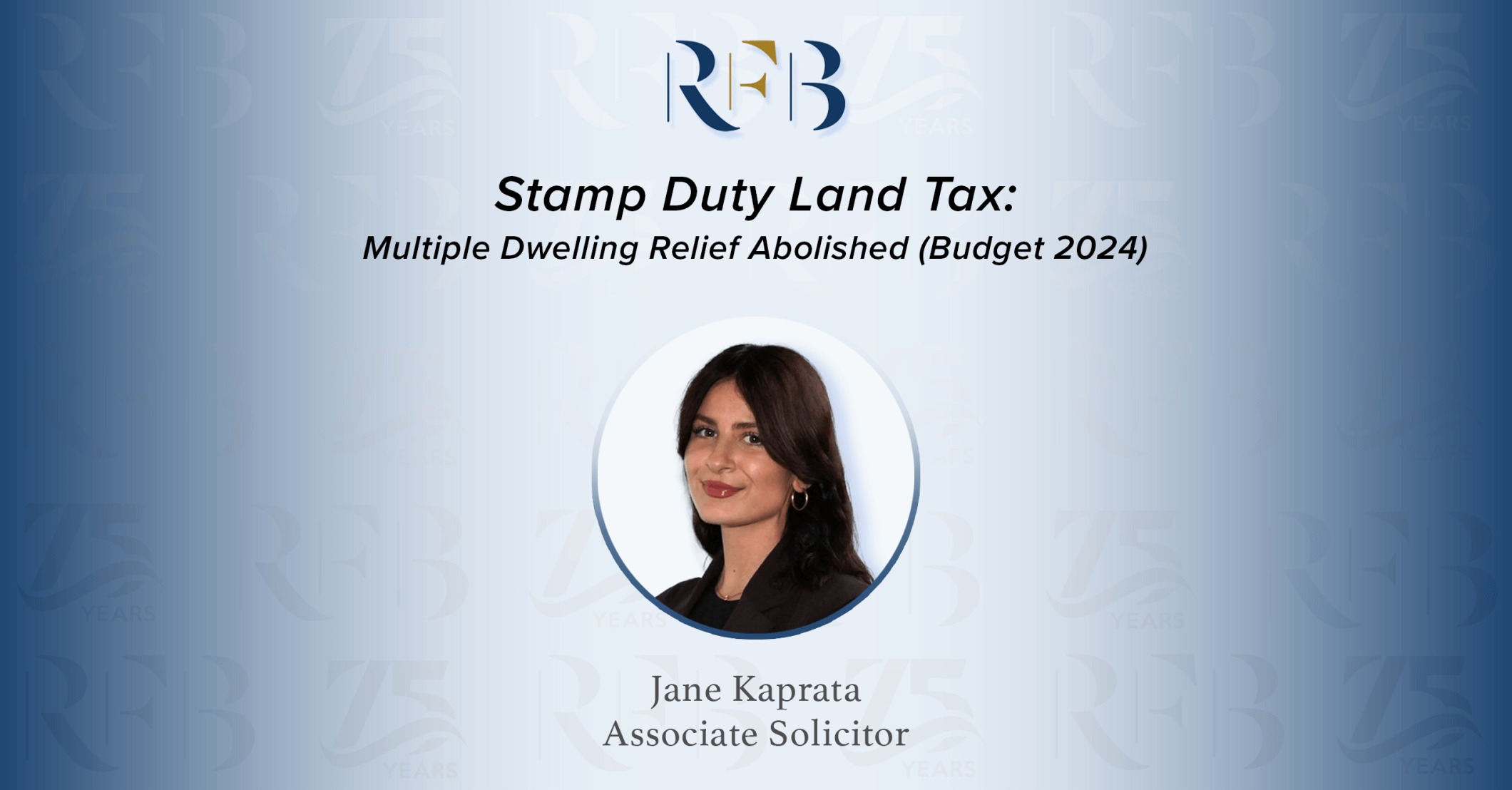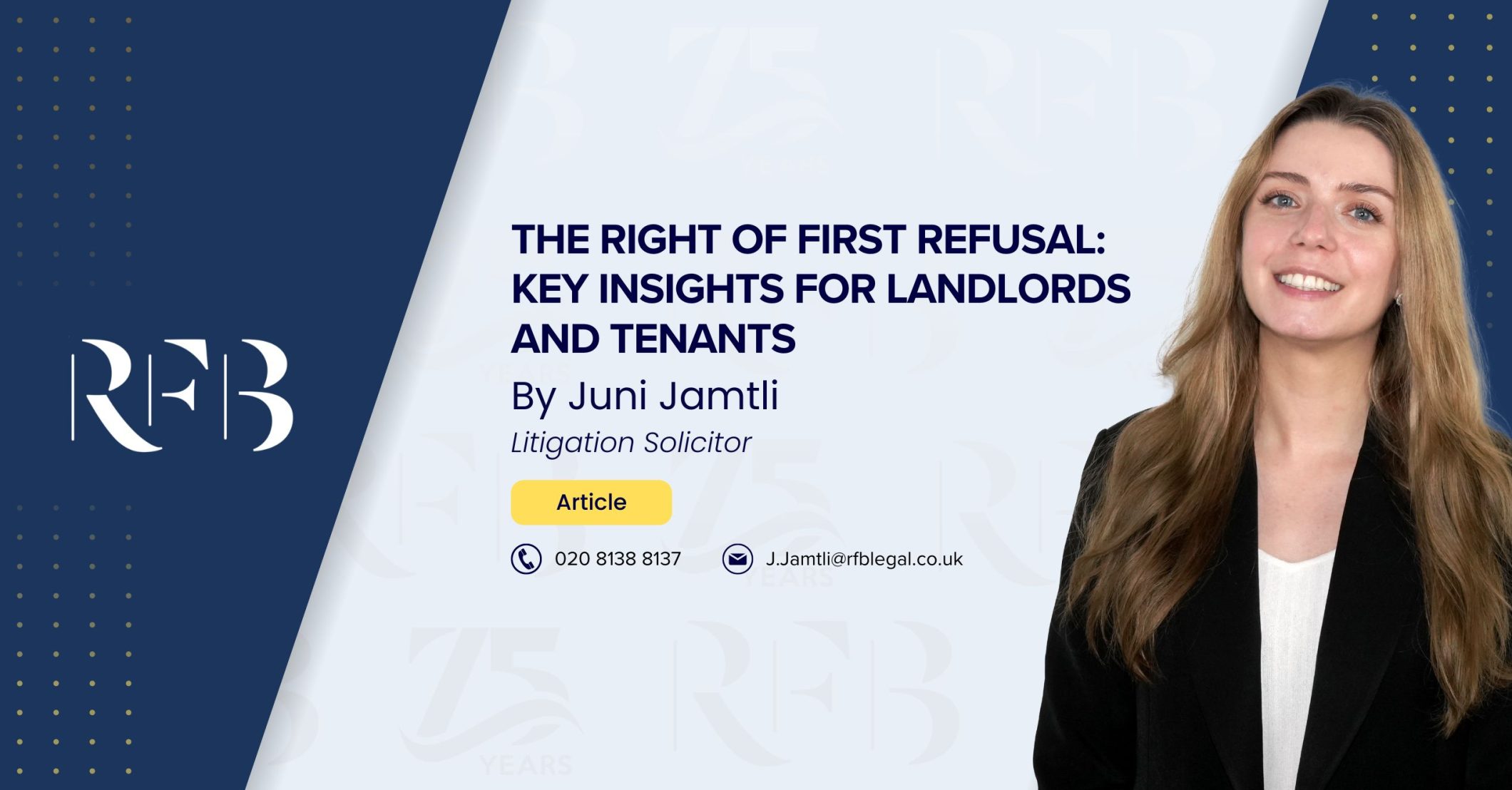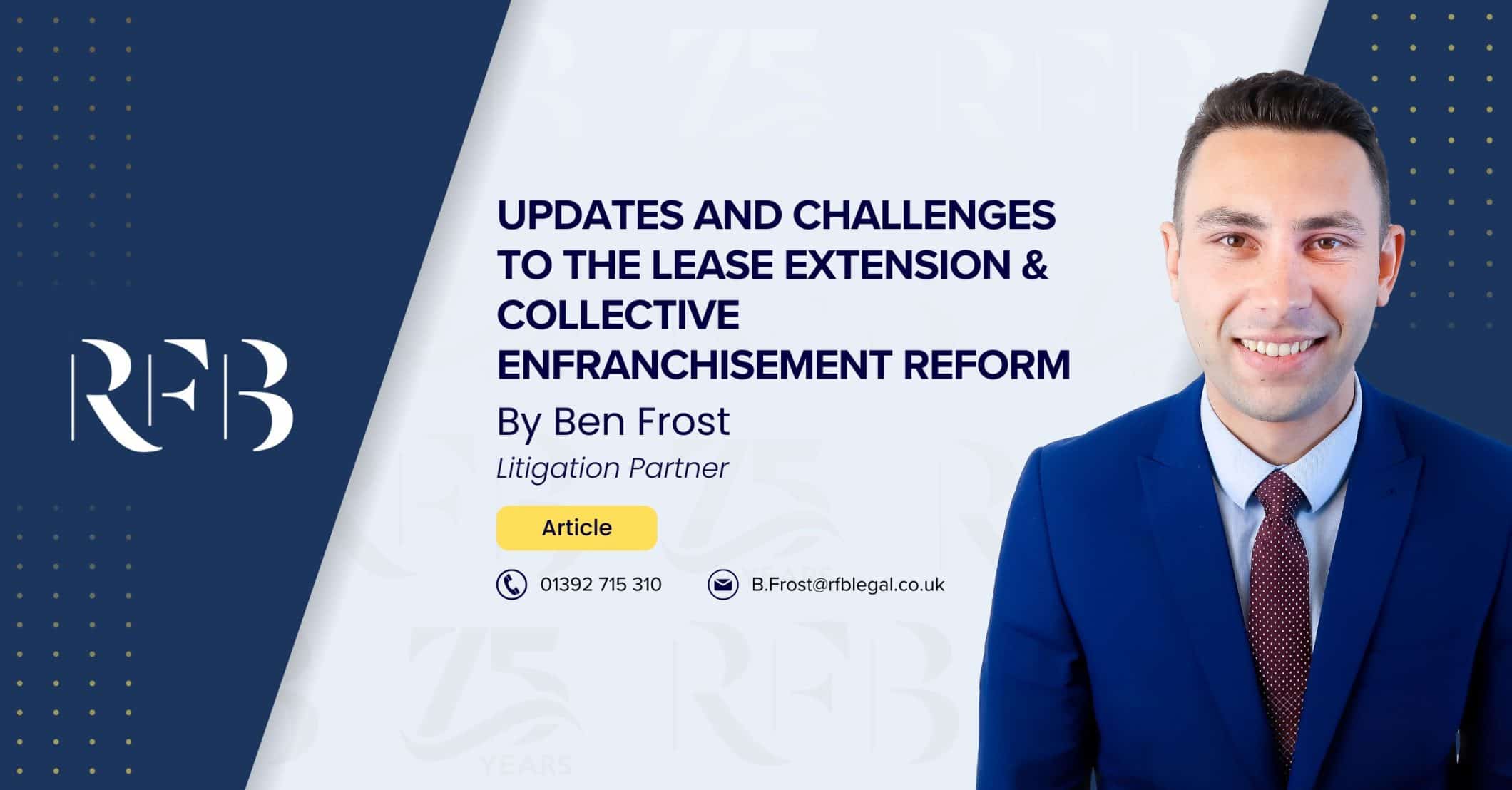In this article, we address some common questions that arise when a receiver is appointed following a default on a loan.
What Is the Difference Between LPA Receiver & Fixed Charge Receiver?
It is often assumed that a ‘LPA Receiver’ and a ‘Fixed Charge Receiver’ are the same and the terms are often used interchangeably. It is common to hear the phrase ‘LPA receiver’ used – incorrectly – to refer to any receiver. There are important differences between the two.
The powers of an LPA Receiver are derived from the Law of Property Act 1925 (“LPA 1925”). Those powers are extremely limited and whilst the LPA Receiver has the power to collect rent, they have no power of sale.
Given the limitations of LPA receivership, typically a secured lender will appoint a receiver that has the powers of an LPA receiver under the Law of Property Act 1925 (LPA 1925), as well as the contractual powers given to them by the document creating the charge (section 101(3), LPA 1925). Such a receiver is known as a Fixed Charge Receiver.
Can a fixed charge holder appoint a receiver?
Yes, a fixed charge holder (usually a secured lender) can appoint a receiver if the borrower defaults on their loan. This is typically done under the terms of the loan agreement. The receiver is appointed to take control of, manage, or sell the charged property to recover the outstanding debt.
What powers does a Fixed Charge Receiver usually have?
A Fixed Charge Receiver is typically appointed by a secured lender, to recover debts owed by a borrower who has defaulted on a loan secured against property or land. The FCR’s role is to take control of and manage the charged property to protect the lender’s interest, recover as much of the outstanding debt, including any monthly interest, as possible, and account for any associated fees.
Typical powers that a Legal Charge would give to a Fixed Charge Receiver would be:
- The power to sell or otherwise dispose of the property
- Take possession of the property
- Complete any development of the property
- The power to protect assets, for example, by insuring them against damage or arranging for their repair.
- The power to lease and manage the property.
Often a charge will also include a “catch all” provision which allows a Receiver to do anything that an owner of the Property may do but this is not always the case.
When can a lender appoint a Fixed Charge Receiver?
Before a lender can appoint a receiver under a charge, their power to make an appointment under it must be exercisable.
Typically, most charge documents disapply the restrictions of the LPA 1925 that prevent the appointment of a receiver until the mortgage money is due and the lender can exercise their right of sale. Most charge documents provide that the lender can appoint a receiver when the security becomes enforceable, which is usually on the occurrence of an event of default.
The events of default may be set out in the charge document or in a related finance document, for example the facility agreement. Among other things, the events of default will usually include any failure by the borrower to pay any sum when due to the lender.
Once a lender’s power to appoint a receiver under a charge is exercisable, the lender can proceed to appoint a Fixed Charge Receiver.
The appointment of a Fixed Charge Receiver usually involves the following three steps, which must be completed in order:
- The execution of the appointment document by the charge.
- The delivery of the appointment document to the proposed receiver(s) or, if the borrower is a company, to the proposed receiver(s) or someone on their behalf.
- The acceptance of the appointment by the receiver(s) or, if the borrower is a company, by the receiver(s) or someone duly authorised on their behalf by the end of the next business day.
The appointment document must comply with the formalities required by the charge document.
If the lender appoints a Fixed Charge Receiver to a company’s assets, they must notify the Registrar of Companies of the appointment within seven days.
What if a Fixed Charge Receiver’s appointment is invalid?
The receiver’s appointment is invalid if the appointing lender fails to comply with the requirements of a valid appointment.
If the receiver’s appointment is invalid and the receiver is on the borrower’s property, they are a trespasser. The receiver is liable to account to the borrower for any dealing with the property that they undertake as trespasser. This may include liability in tort for wrongfully interfering with the borrower’s title to its assets.
Are receivers acting as agents for the borrower?
Yes – It is important to note the agency relationship of the Fixed Charge Receivership. A Fixed Charge Receiver is invariably the agent of the Borrower not the Lender. Accordingly they owe a duty of care to the borrower and any guarantor of the liabilities secured by the charge.
The borrower, rather than the lender, will be liable for any acts of the receiver, carried out in the course of the receiver’s agency.
Who does a receiver owe duties to and what duties are owed?
The receiver owes their duties primarily to the appointing lender.
The receiver does however owe a duty to the borrower, to act in good faith in the course of their appointment.
The principal duty of the receiver is to preserve and (assuming the receiver has power to do so) realise the assets to which they are appointed, in order to repay the liabilities of the borrower secured by the charge.
A receiver cannot be passive, but must actively work to manage and realise the assets with the objective of repaying the secured liabilities. In fulfilling their duties, the receiver must act with reasonable competence. What is reasonable will depend, in part, on the circumstances of the particular receivership.
When dealing with the sale of properties, Receivers have a duty to achieve the best price that is reasonably obtainable in the circumstances at the time of sale. The main criticisms made of Fixed Charge Receivers are that they did not properly market the property adequately and sold the property at an undervalue.
There have been numerous Court cases and challenges of Receiver’s conduct over the years and the following cases provide a good insight as to how a LPA or Fixed Charge Receiver should deal with the sale of a property:
Silven Properties Ltd & Anor v Royal Bank of Scotland Plc & Ors [2004]
In Silven Properties Ltd & Anor v Royal Bank of Scotland Plc & Ors [2004] it was determined that a Receiver is not under a duty to pursue applications for planning permission or to undertake renovations to properties with a view to increasing their value. So while Fixed Charge Receivers do have the power to improve properties, if they think that that is appropriate, they are not under an obligation to do so, i.e. they are entitled to sell the property as is, as long as they try to get the best price for it in its current state.
Bell v Long [2008] and McDonagh v Bank of Scotland Plc [2018]
In Bell v Long [2008] and McDonagh v Bank of Scotland Plc [2018] it was determined that a Receiver was free to sell properties individually, or as a part of a portfolio of properties. The issue is of course that greater realisations would be made when selling the properties individually, but there would be greater costs incurred, and it would take longer. The Court made it clear that Receivers should obtain independent advice on the cost benefit analysis of selling a portfolio as opposed to selling the properties individually. However if that advice was to sell the properties as a portfolio they were entitled to do so.
Glatt v Sinclair [2011]
In Glatt v Sinclair [2011] EWCA Civ 1317 the Courts held that a Receiver should take advice on the marketing strategy and the property market in general and any factors that may affect the sales price significantly.
Distribution of proceeds
Although the LPA 1925 provides a scheme for the distribution of asset realisations, the lender and borrower may agree a different order of priority in the terms of the charge document.
The terms of a charge will typically contain provisions about how the receiver should distribute the proceeds of the asset realisations that the receiver makes in the course of their appointment.
It is usual for the charge to follow the broad scheme of section 109(8) of the LPA 1925, but with modifications, usually to the commercial benefit of the receiver and the lender. For example, a charge will often provide for the receiver to pay their remuneration and any disbursements or expenses incurred in the course of their appointment in priority to all other claims.
Can an LPA receiver sell property if the charge is silent on the issue?
No. A receiver does not have a power of sale unless the charge grants it. No receiver power of sale is implied.
For enquiries on this topic about defaults on loans and the appointment of Fixed Charge Receivers, please contact David Burns on D.Burns@rfblegal.co.uk or by phone on 0207 467 5751.


